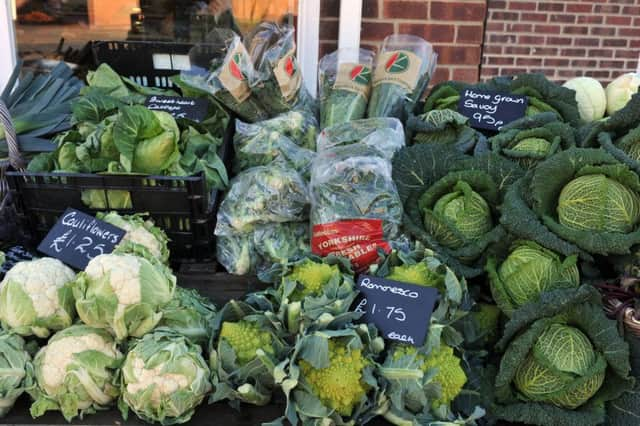Farming Minister George Eustice hints at new era of investment for horticultural technology


The need for emerging robotic and automative technologies to be put to work in the industry is “more pressing than ever”, according to the AHDB levy group, due to the need to off-set labour shortages that are dogging the horticulture sector.
Now, Mr Eustice has hinted there will be more help for growers as part of Britain’s first domestic farming policy since the 1970s.
Advertisement
Hide AdAdvertisement
Hide AdThe Minister said: “Horticulture tended not to be supported by the (EU’s) Common Agricultural Policy because it’s historically not been a subsided sector, and I think there’s an opportunity in the way we’re designing future policy in that we may have support to help people invest in new equipment and new technology.”
He added: “There’s an opportunity for horticulture to get access to that kind of support in the future in a way that it perhaps didn’t in the past.”
The Government offers funds for projects that improve farms’ productivity and create jobs and rural economic growth through the Rural Development Programme for England (RDPE) but limited options are open to the horticultural sector.
A second round of the RDPE’s small grant scheme, which helps farmers and growers buy equipment to raise productivity is planned for later in the year, Mr Eustice said.
Advertisement
Hide AdAdvertisement
Hide AdAny fresh investment would be welcome, according to Guy Poskitt, a prominent Yorkshire vegetable grower. He said horticultural businesses have the potential to benefit from a range of technological innovations, including more robotic machinery, but any Government investment must be executed correctly.
Mr Poskitt, who farms near Goole and is vice-chairman of the National Farmers’ Union’s (NFU) horticulture and potatoes board, said: “There are two things the Government mustn’t do with any future investment deal. They mustn’t make the application process onerous or the response to applications slow, and second, every grant funding in the past has been linked to jobs but there is no unemployment in British horticulture.”
Instead, the focus of any new grant funding should be to bring innovations to businesses that will help mitigate horticulture’s labour supply shortfall, Mr Poskitt said.
“In factories there’s scope for more automation for packing and stacking. In fields, if you have a strawberry crop, for example, that could ripen at the same time, can you find a robot to pick it?” Mr Poskitt said, adding: “There’s technology out there, it just needs the money. Growers can’t afford it.”
Advertisement
Hide AdAdvertisement
Hide AdMr Eustice said the industry can face the future with “great confidence” and that the Government would design a new farming policy that helps and supports horticulture to invest and grow.
ASSURANCE OVER LABOUR
Brexit uncertainty and a weak pound mean horticultural businesses are struggling to fill roles in fields and factories from traditional supplies of foreign labour.
A recent NFU survey found there was a 29 per cent shortfall seasonal labour in September 2017, with levels expected to be around similar levels this year.
Farming Minister George Eustice said the Government was in discussion with the Home Office about the possibility of a future Seasonal Agricultural Workers Scheme that would aim to secure a better supply of labour.
Advertisement
Hide AdAdvertisement
Hide AdThe Government has proposed a post-Brexit transition period for farming policy, running until the end of 2020 and Mr Eustice said: “We will ensure that by the time we come out of that transition period we’ve got sufficient arrangements in place to make sure we’ve got the labour that we need.”